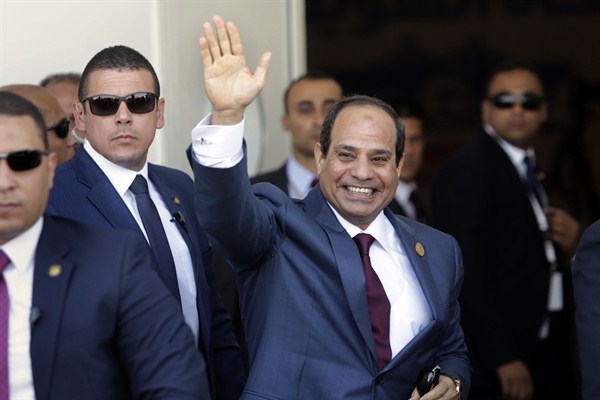Consider three pieces of bad news from Egypt this week: low voter turnout—likely just as the government intended—in a sham election; the resignation of Egypt’s central bank governor as the currency continues to be devalued; and the arrest of a senior leader and chief financier of the outlawed Muslim Brotherhood.
Each development was a reminder of the state of Egypt under President Abdel-Fattah el-Sisi, a strongman who has ruled unilaterally without a parliament since 2013. The hope of democratic reform seems farther away than ever. The economy, in free fall since the popular uprising that led to Hosni Mubarak’s ouster in 2011, is still reeling, and it seems no amount of Gulf billions can save it. And el-Sisi’s crackdown on dissent, targeting not just Islamists but any critics of the regime, continues unabated.
And yet el-Sisi has ridden all this out, appearing as strong, or at least as confident, as ever. His handpicked parliamentary candidates are set to fill a rubber-stamp legislature, while new international partners—the Gulf states and, increasingly, Russia—wholeheartedly back him. He has survived a string of bad news that has been framed as threatening his very standing.

